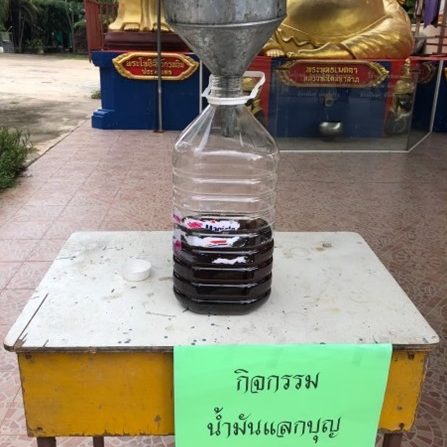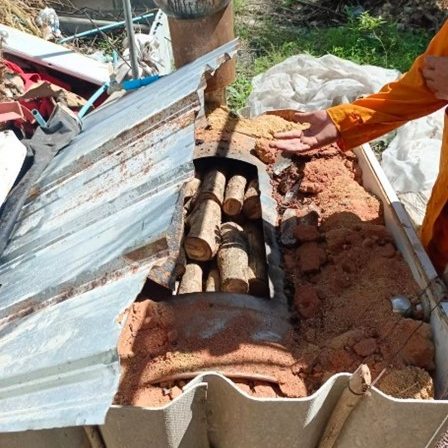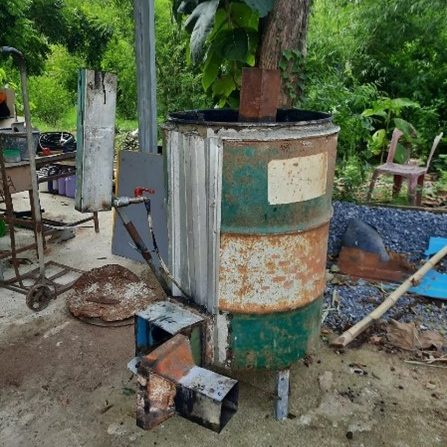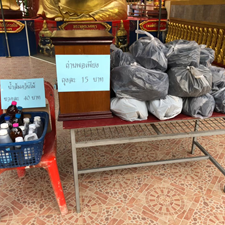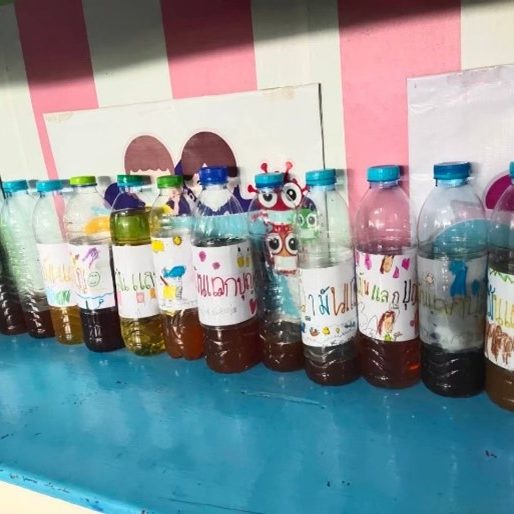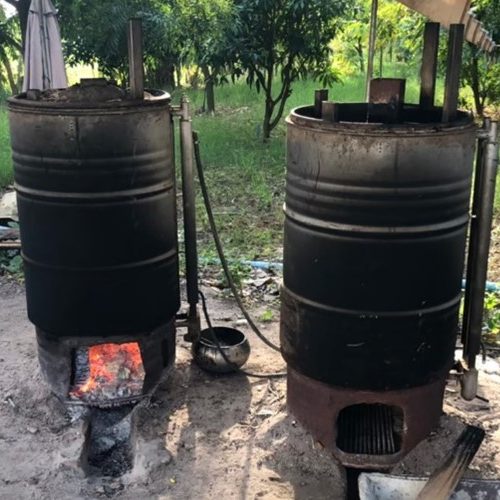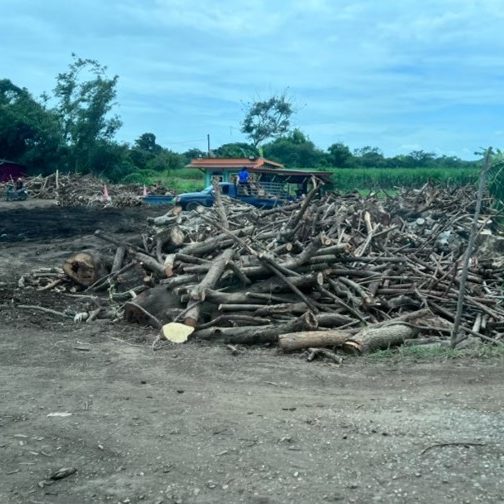Mobilization of Community Networks on Environmental Management through the “Community Temple School” based approach
Highlight:
- The charcoal kiln invention was discussed to manage agricultural waste in the community
- Building a strong community network of community members, a school, and a municipality
Researcher Name: Pajaree Zibangkerd, Kantapong Sinarpa, Wanthana Huekharnsusattru, Supakorn Limkhunthammo, Sasiwan Phoolsawat, Sunti Srisuantang, Prasong Tanpichai.
Years of execution: 2022-2023
Funder Name: Faculty of Education and Development Sciences, Kasetsart University, Kamphaeng Saen Campus.
Objectives: To develop the community networks of Ban Nong Pratun, Krap Yai Sub-district, Ban Pong District, Ratchaburi Province.
Abstract
This action research aimed at the mobilization of community networks on environmental management through the “Community – Temple – School” based approach. Regarding the consideration of a Buddhist temple as the public space, Wat-Nong-Pra-Toon was set as a research base. Research participants comprised; 1) community members; 2) a school; 3) a temple; and 4) a municipality. The research was conducted following three consecutive steps including 1) planning; 2) implementation and evaluation; and 3) reflection. Data collection was undertaken through group discussions, interviews, and observations. Content analysis was used for data analysis. The results showed that: 1. Contextual situation analysis and needs identification were addressed through collaborative analysis of the problems in agricultural waste management; this was complemented by several group meetings of the research team and the research participants. The charcoal kiln invention was discussed to manage agricultural waste in the community. 2. With respect to the process of charcoal kiln invention, there were two activities including 1) the community networks gained the charcoal production knowledge from field trips, and applied it to the community, 2) building a strong community network of community members, a school, and a municipality by which Wat-Nong-Pra-Toon served as a core of the community activities. 3. Regarding the implementation of charcoal kilns, three activities were conducted namely; 1) collecting used cooking oil donated for the charcoal procedure using a school and community members as information distributors; 2) communicating between community leaders and community members for gathering firewood from agricultural waste materials in households and local areas; and 3) donating charcoal products to community members through religious ceremonies.

